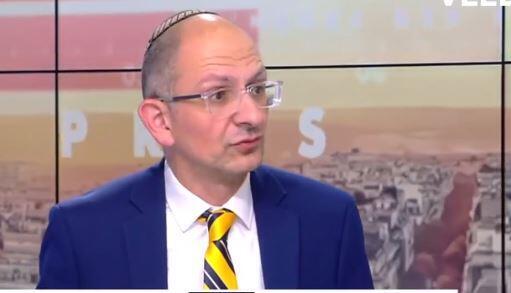An Israeli doctor found himself lost for words when a reporter on French television asked why he arrived with a skullcap, known as kippah.
Dr. Cyrille Cohen, head of immunology at Bar Ilan University - who was a member of the board advising the Health Ministry on the COVID -19 pandemic - explained that he always wears his kippah as part of his Jewish identity, and means no offense by it.
A member of the panel, French Jewish journalist Elisabeth Levy pushed Cohen further, claiming that the French consider religion to be a personal affair, to which he replied that he could hardly keep his identity personal with a name like Cohen.
The incident caused dismay among some Israelis after the exchange became viral online.
Sivan Rahav-Meir, an observant Jew herself and a reporter for Israel'sChannel 12, shared the clip of the television show on her own Twitter feed.
However, Rahav-Meir may not have been aware of the sensitivity in France over the separation of religion and state.
France has in its constitution, the principle of secularism, which is meant to preserve the freedom of conscience and guarantees the freedom to practice religion, as a matter of law which was previously used to prevent Muslim women from wearing full-face veils in public places.
Still, with the rise in antisemitism, some Israelis were concerned that the exchange was motivated by hate towards Jews in their online comments.


